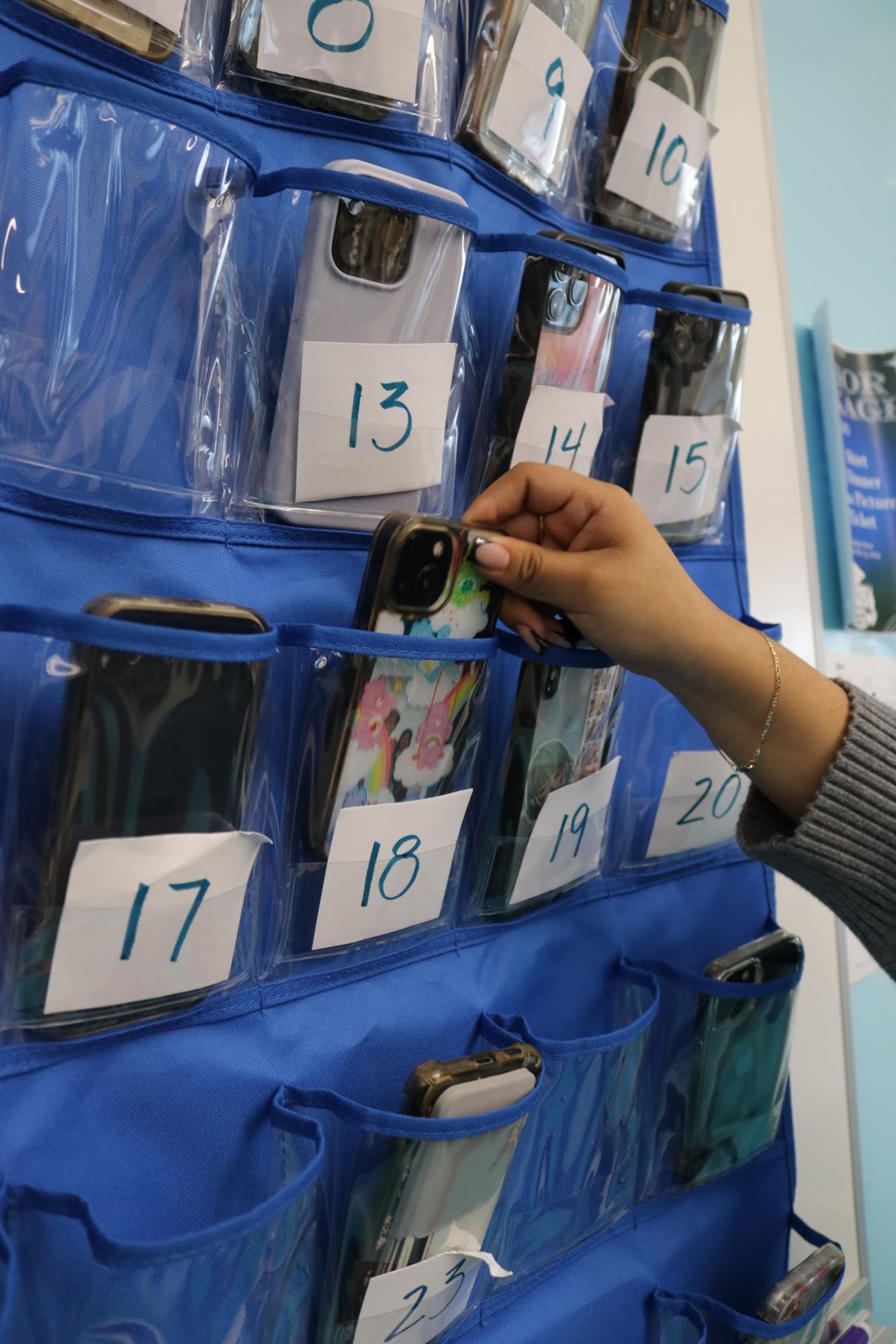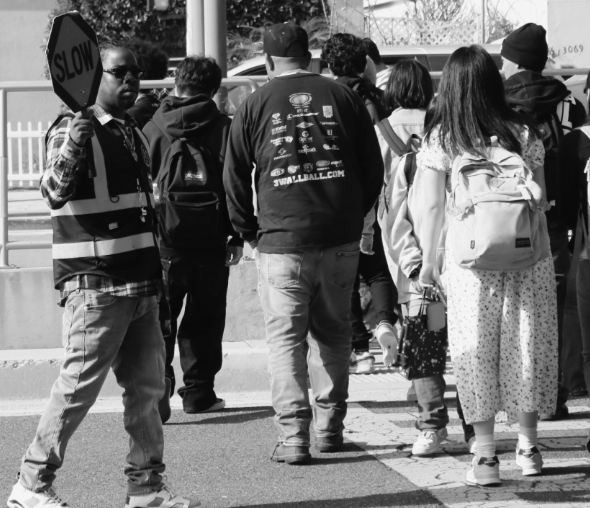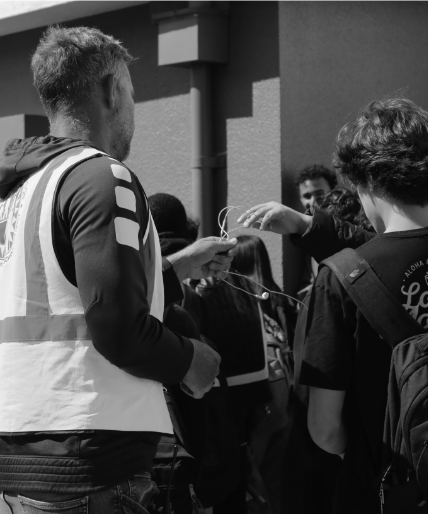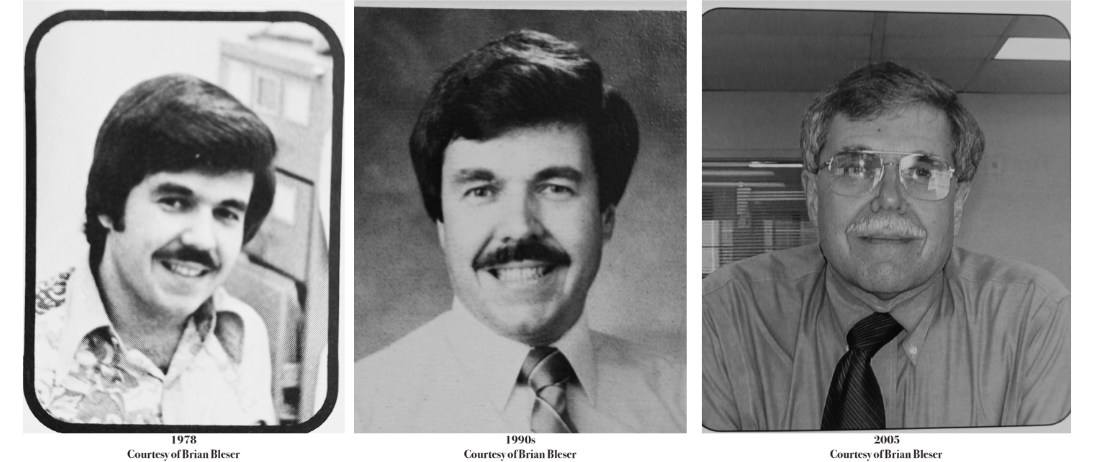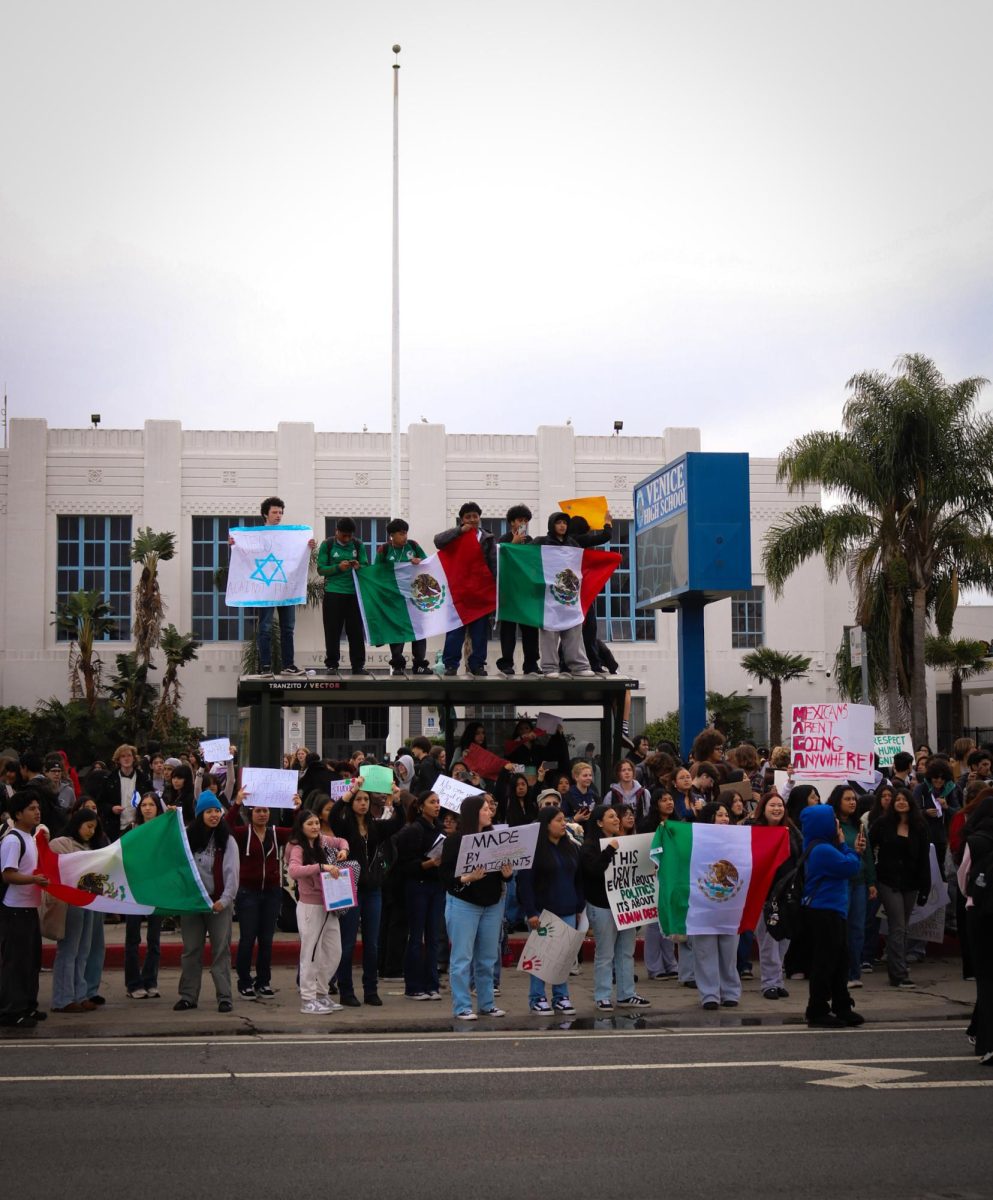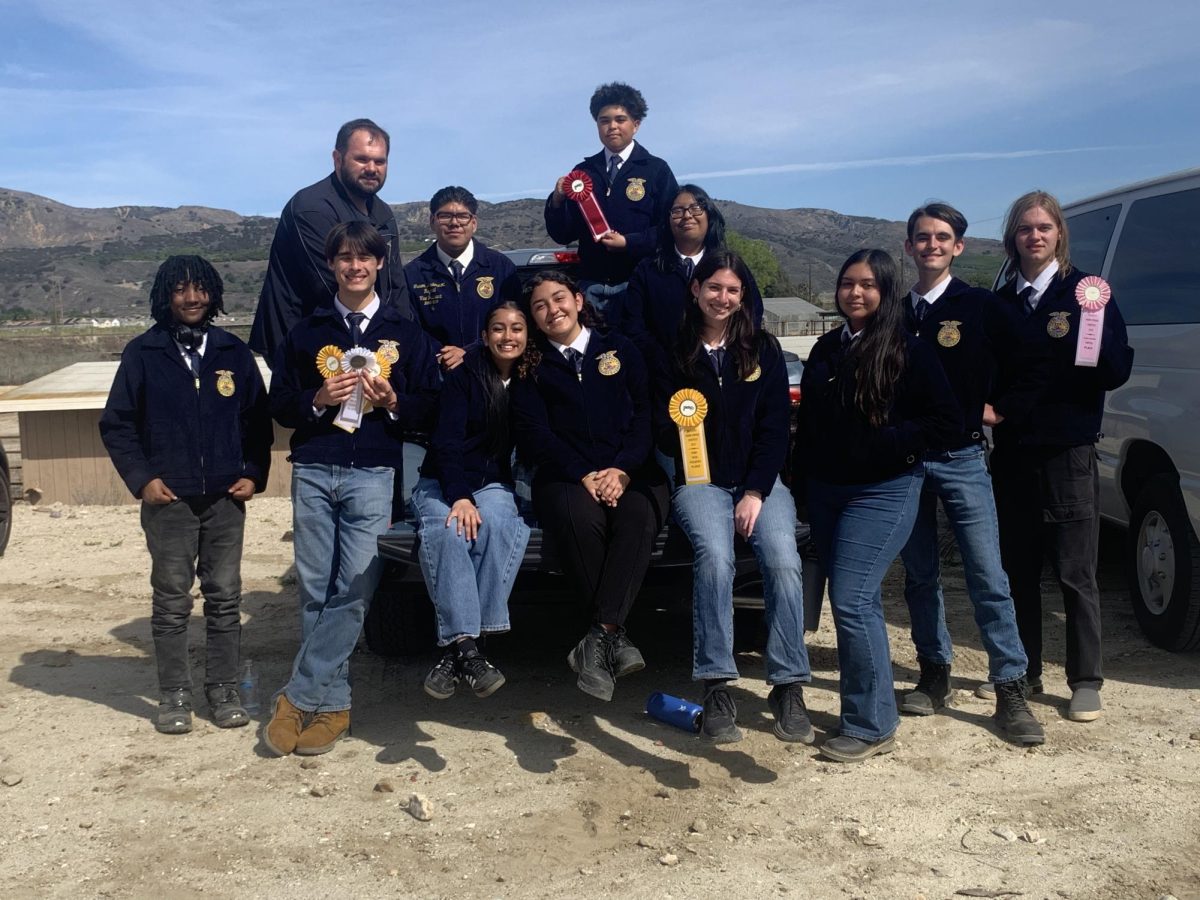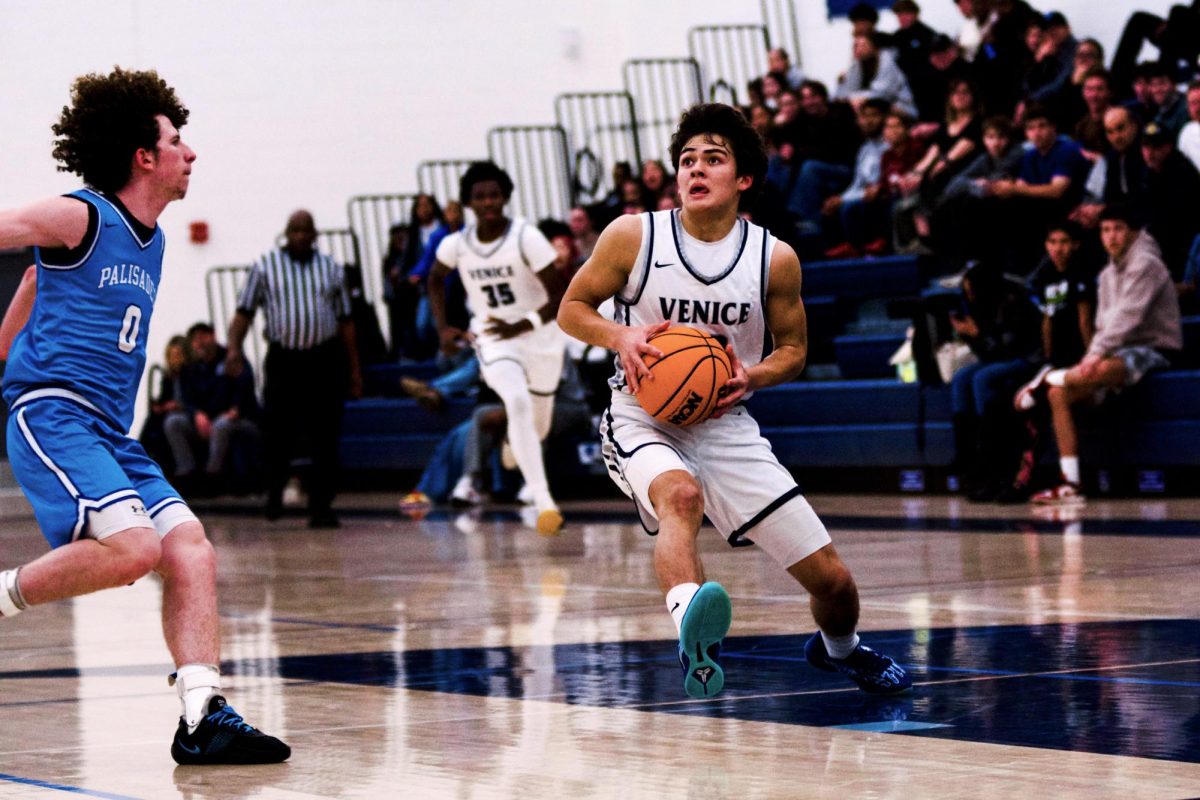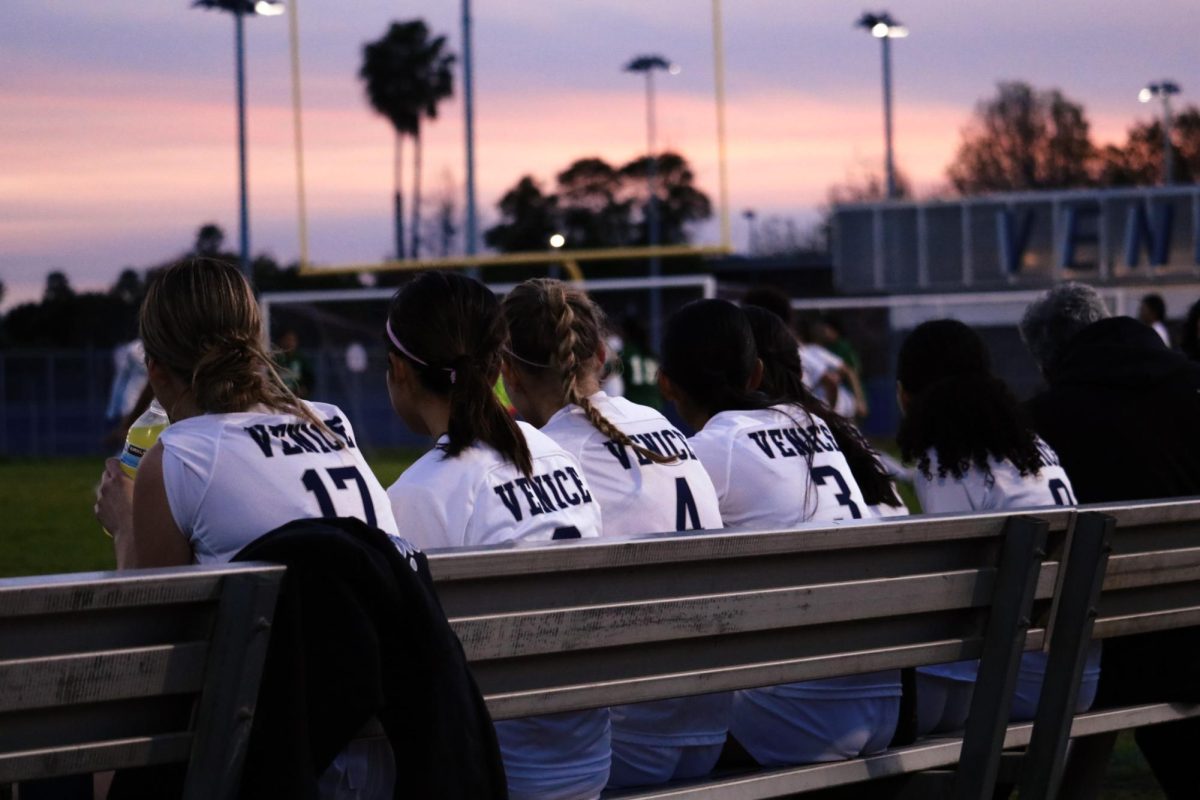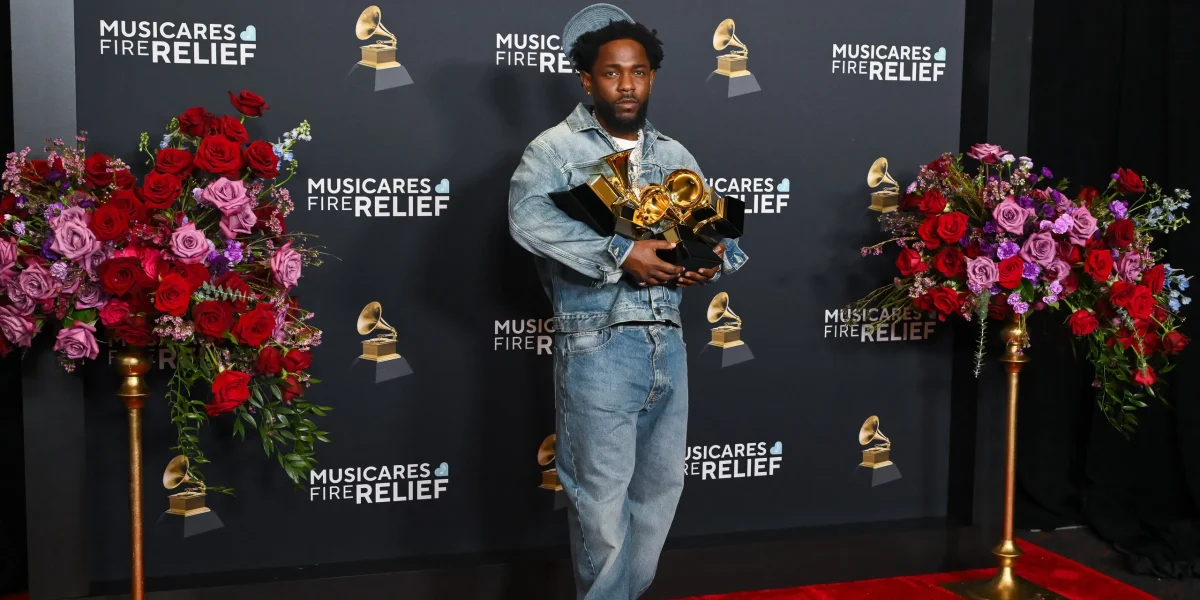Mark your calendar apps: February 18, 2025 marks the beginning of a new district-wide cell phone policy for LAUSD.
Nick Melvoin, a member of the LAUSD Board of Education, along with two co-authors, members Jackie Goldberg and Tanya Ortiz Franklin, presented Board Resolution 035-23/24 on June 18 during a Board of Education Board meeting, and the resolution was promptly passed.
The resolution, which was reintroduced by Melvoin, highlights the negative effects cell phones have on students during classroom learning, and requires LAUSD to create a district-wide policy that would “prohibit student use of cell phones and social media platforms district-wide during the entire school day.”
Behind the Resolution
Melvoin said that whenever he visits schools without a cell phone policy, he has seen students on phones in class.
“Smartphone usage in schools has become pretty ubiquitous,” he said.
Melvoin said that phones have been proven to have significant negative side effects on mental health, and aspects like social media can contribute to “depression and anxiety.”
The resolution cites multiple studies which back this claim, including the US National Survey on Drug Use and Health; the Youth Risk Behavior Survey by the Centers for Disease Control and Prevention; two surveys by Common Sense Media, one published in 2016, and one published in 2023; and a 2023 advisory made by the U.S. Surgeon General.
Furthermore, in an opinion piece published by him in the Los Angeles Times, Melvoin directly cites psychologist Jonathan Haidt’s book, The Anxious Generation: How the Great Rewiring of Childhood is Creating an Epidemic of Mental Illness, and a 2023 UNESCO report, but also cites numerous other articles who share similar views.
Melvoin said that these new studies, along with his first-hand experience, led him to bring this resolution forward to the board.
“I thought the time had come to curb some of that behavior and change the way we talk about mental health,” said Melvoin.
Defining the Policy
The resolution states that this updated policy must go into effect no later than the second semester of the 2024-2025 school year, and must be consistent with state and federal legal requirements and differentiated by age and grade level. District policies must also provide guidance for different types of devices, consider options for safe device storage, and offer an effective communications plan.
These guidelines provided the foundation for LAUSD’s new phone policy. In a presentation on November 12 by Andrés Chait, LAUSD Chief of School Operations, titled “Supporting Student Mental Health: Providing a Phone-Free School Day,” he outlined the specific parameters of the new policy.
“Students may not use cell phones on campus during school hours, [and] devices must be turned off and stored away, depending on the selection by the Local School Leadership Council (LSLC),” the policy stated.
The policy also applies to both devices with “smartphone functionality,” including earbuds, smart watches, and smart glasses, and non-“smart” devices, like those with only call and text capabilities. Students may use their cell phones on campus before and after school, though.
Current and Upcoming Legislation
Currently, there are only two other LAUSD policies on the use of smartphones.
Policy Bulletin-5468.0, titled “Use of Cellular Telephones and Other Electronic Devices by Students,” was issued on May 4, 2011, and prohibited the use of cell phones, pagers, and any electronic signaling devices during school hours or school activities, but allowed the usage of those devices during nutrition and lunch breaks, unless a particular school adopted a stricter policy.
Policy Bulletin-6399.2, titled “Social Media Policy for Students,” was issued on July 18, 2018, prohibiting unauthorized disclosure of or access to sensitive information, unlawful activities by students online, and making all devices under the district’s Network adhere to district policies.
Current state law on the use of smartphones is reflected in Section 48901.7 in the California Education Code, and simply grants any school within California the ability to enforce a cell phone policy, but does not require a cell phone policy to be adopted within a school.
However, Assembly Bill 3216, which was recently approved by California Governor Gavin Newsom on September 23, will require all schools within California to adopt a cell phone policy that either limits or prohibits the use of smartphones by July 1, 2026, and that said policy must be updated every five years.
A “Phased Approach to Implementation”
To implement the policy, the district has decided to adopt a “phased approach to implementation,” including three different phases leading up to February 18, according to the presentation by Chait.
Phase I (October to December 13) is focused on ensuring everyone is informed about the upcoming policy, and includes Zoom trainings with staff, LSLC meetings, communications to district stakeholders, messaging tools, such as presentations, and the selection of the option by the LSLC.
As mentioned in the parameters of the new phone policy, the LSLC is currently responsible for deciding which method for device storing would best work for the district. The five methods approved by the district for the council to vote upon include storing phones in backpacks, a portable storage unit, magnetic pouches, velcro pouches, or a classroom phone holder. As of now, the LSLC has yet to come to a decision.
Assistant principal Ernesto Guerrero said that he has been meeting with different teachers, staff members, and parents as part of Venice’s Phase I plan. However, as the district still awaits the decision from the LSLC, there isn’t much Venice can do to prepare in the meantime.
“Once we know the system we are going to use, we will then discuss how to implement it,” he said.
Guerrero said that he supports the new LAUSD phone policy, adding that he agrees that phones negatively contribute to mental health.
“I support the healthy development of our young people,” he said. “There are a lot of challenges for young people using phones. I think there are more negative aspects of phones than positives, mainly in the aspect of mental health.”
Once the LSLC makes their decision, we then move into Phase II (January 6 to February 14), which focuses on supplying the district with the appropriate method of phone storage (if necessary), continuing frequent communication, and training for both staff and students.
Lastly, on February 18, 2024, LAUSD will initiate Phase III, otherwise known as the implementation, or “rollout,” of the cell phone policy across the district.
Student Concerns
Students at Venice have reacted to the new LAUSD cell phone policy with a variety of questions about what this could mean for the future of LAUSD schools.
Here are some major questions that have been raised:
Do students support the new LAUSD cell phone policy?
Junior Oliver Mars Cornelius does not think the policy will help students be more focused.
“It’s like trying to solve a problem, but not at the root,” they said. “I think the issue isn’t the phones themselves, but rather that students aren’t engaged or interested in their learning. If they’re distracted during class, they’ll just find another distraction to take the place of their phones.”
As someone who is legally blind, Cornelius is one of the few students who will still be able to carry their phone and use it for specific purposes.
“I use my phone as a visual aid,” they said. “If you take my phone away, or try to, it’s similar to trying to take someone in a wheelchair’s wheelchair away. It’s taking away my ability to be independent.”
In anticipation of the upcoming policy, Cornelius said that they worry that this negative stigma around phones will cause them to face negative treatment.
“Since I know some staff might not be aware that I’m allowed to carry my phone, I will probably face questioning because of it,” they said.
However, freshman Milan Cooper “isn’t opposed” to the new policy.
“I think it’s pretty reasonable considering a lot of kids are distracted on their phones during school,” she said. “I don’t really use my phone during school, so the policy is going to allow me to be more focused.”
Why doesn’t the new LAUSD cell phone policy apply to teachers and administrators too?
Melvoin said that the reason teachers were not included within the resolution is because it would have had to be negotiated with the United Teachers of Los Angeles, but that he hopes that teachers “will take note that this is happening and will lead by example.” He also added that the “research is different on adults than kids,” regarding the negative consequences of phones during classroom learning.
What about students concerned over not being able to use their devices for classroom learning?
Melvoin said that “99 percent of the things needed in a classroom can be done on your district device.”
Since district computers utilize websites like GoGuardian, which allow teachers and administrators to block and unblock certain websites and close out tabs on student’s screens, Cooper said that it’ll cause students to be “less distracted.”
“There’s nothing on a phone that’s going to help you more than a computer and a calculator would,” she said.
What about students concerned that a phone ban also means that students aren’t able to record wrong-doing of teachers?
Melvoin said that instead of using a phone, a student can use the camera feature on a district device to record the incident, but if a student’s district device doesn’t have a camera, there are other avenues of reporting misconduct of teachers, including talking to teachers and staff.
What would happen if there was an emergency situation on campus? Would a student be allowed to use their phone?
According to both Section 48901.7 of the California Education Code and the upcoming Assembly Bill 3216, you are legally allowed to use your phone in the case of an emergency situation.
However, Melvoin said that police, mental health experts, and first responders that he has spoken to or heard from have told him that the best thing to do during an emergency is to make sure kids don’t have phones, as 911 switch boards become overwhelmed from all of the different calls coming in.
Cornelius said that they had heard some of their teachers sharing this same idea that Melvoin originally addressed in his opinion article for the Los Angeles Times, in which he cited Kenneth Trump’s interview with Fox 8 Cleveland where he made similar claims. Trump is president of National School Safety and Security Services.
“I don’t think that’s something students agree upon,” Cornelius said. “I wish teachers and administrators would make those resources more accessible, and I specifically want to see more examples of where personal experience comes into this.”
Furthermore, the new LAUSD phone policy doesn’t provide exceptions for personal emergencies, meaning that staff members would be required to send communications to the student’s parent or guardian for them.
Despite being generally supportive of the policy, Cooper said that this aspect of the policy was “extreme.”
“If we are having an emergency, we might not want to share personal information with staff, and so we should be granted phone use for that,” she said.
A New Era for LAUSD
Cornelius said that they think there is going to be “a lot more disciplinary action.”
“I think people are going to be angry, and they might not come to school as much,” they said. “I think classes won’t be any easier to manage, and possibly harder for teachers and staff.”
Cooper also thinks that students will be “upset” at the implementation of the policy.
“But I also feel like there is going to be more social interactions, and hopefully when people are walking, they won’t be walking into walls,” she said.
Melvoin said that he “doesn’t see this policy as a punishment” to students.
“The benefits to kids and adults are really clear,” he said. “We’re trying to get back to the things that make school and childhood unique.”

